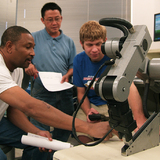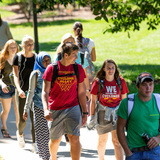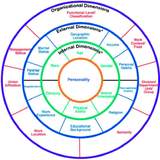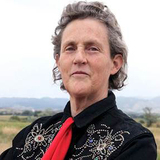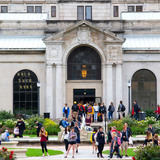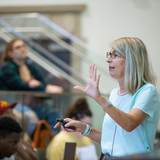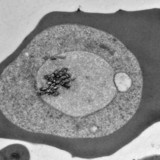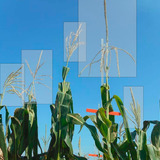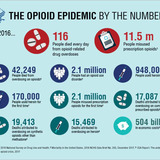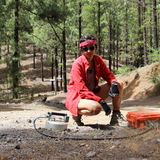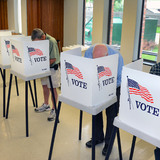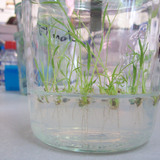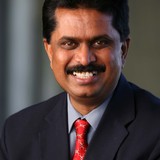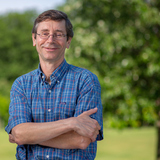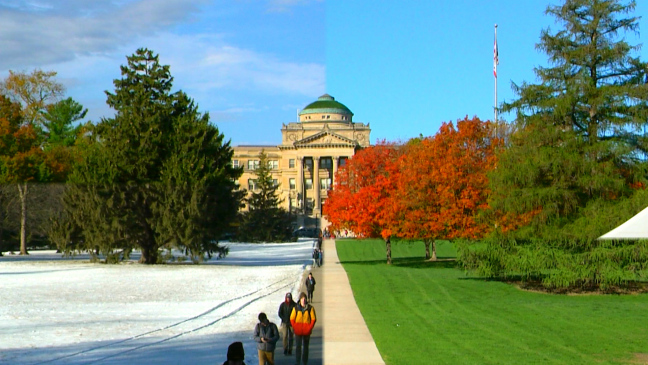News Archive
Saturday, September 8 2018
-
Iowa State part of $10 million effort to encourage a diverse faculty in STEM fields
Iowa State researchers are part of a national alliance that won a $10 million grant from the National Science Foundation. The alliance will develop programs that increase the diversity and effectiveness of faculty teaching science, technology, engineering and math. Iowa State's part of the project focuses on working with community colleges to recruit and prepare a diverse group of graduate students for teaching careers at community colleges.
-
Iowa State University fall enrollment: Nearly 35,000
Iowa State University’s fall 2018 enrollment is a robust 34,992, the fourth largest in school history. Of that number, 29,621 are undergraduates – the largest number enrolled at any Iowa college or university. The freshman class is up 103 students from fall 2017, and they have the highest-ever average high school GPA for an incoming Iowa State class: 3.64. More than a quarter of them (26.5 percent) ranked in the top 10 percent of their high school class, and their average ACT score was 25.1.
-
More than diverse, class and work teams need to be inclusive
Joel Geske decided to make a change after reading survey responses from students who felt left out or not valued when working on team projects. His approach may seem simplistic, but Geske says you must be intentional to be inclusive, both in the classroom and workplace.
-
Temple Grandin will discuss autism, animal behavior at Iowa State
Temple Grandin, a renowned expert on animal behavior and activist for people with autism, is coming to Iowa State University on Sept. 13.
-
Link between divorce and graduate education a concern as more jobs require advanced degree
Children of divorce are less likely to earn a four-year or graduate degree, according to new research from Iowa State University. Researchers says it is important to understand this relationship as more jobs require a graduate or professional degree.
-
Change Agent: Cinzia Cervato, improving science education, rebuilding after a stroke
Cinzia Cervato will start the fall semester with an explanation and an invitation to her students -- she wants them to understand why she "flipped" her classroom and wants them to meet with her so they get to know her. It's all part of her work to improve science education. Returning to that work was part of her motivation to recover and rebuild after a stroke.
-
Iowa State University scientists study how malaria parasites take over human red blood cells
The parasites that cause malaria make themselves at home inside a host’s red blood cells. An Iowa State University scientist has shown in a pair of newly published articles just how that process works. This new understanding could help to identify new ways to treat malaria.
-
Researchers use crowdsourcing to speed up data analysis in corn plants
An interdisciplinary research team at Iowa State University turned to crowdsourcing to help them design a machine-learning algorithm that could speed up the process of breeding new crop varieties with desirable traits. The recently published research focuses on identifying tassels in images of corn plants, but the work could have implications for other crops as well.
-
Predicting, preventing spread of opioid epidemic in rural and micropolitan areas
The rapid increase of opioid overdose deaths in rural communities across the country has far outpaced the overdose rate in urban areas, and an Iowa State University-led research team wants to know why. The researchers’ goal is to identify prevention strategies and use big data to predict which communities may be at risk.
-
Iowa State sophomore returns from summer on research vessel, atop active volcano
Chanel Vidal, an Iowa State University sophomore in geology, returns to campus after a whirlwind summer working aboard a research vessel in the Atlantic Ocean, studying the Deccan Traps in India and collecting gas samples from an active volcano in the Canary Islands.
-
More women running for political office may hurt chances for down-ballot candidates
Gender stereotypes and biases still influence voters, especially in elections with more than one woman on the ballot. New research from Iowa State University found gender had the greatest effect on down-ballot races, in which women were running for a legislative office and another woman appeared on the ballot for a higher office, such as governor or president.
-
Iowa State University scientist helps to develop rice plants to neutralize HIV transmission
An international research group, which included an ISU scientist, has proven that three proteins that can help prevent the spread of HIV can be expressed in rice plants. Using plants as a production platform could provide a cost-effective means of producing prophylactics, particularly in the developing world.
-
Breaking down the barriers of human-computer communication
Many of us regularly ask our smartphones for directions or to play music without giving much thought to the technology that makes it all possible – we just want a quick, accurate response to our voice commands. With more businesses using artificial intelligence to engage with consumers, the industry is working to make those interactions more human-like. An Iowa State researcher is contributing to that effort by improving how machines, such as smartphones and computers, understand and generate language.
-
Biomedical scientist receives Department of Defense grant to study how metal exposure affects Parkinson’s symptoms
ISU biomedical scientists are examining how exposure to the metals manganese and vanadium may contribute to Parkinson’s disease. The research was supported recently by a nearly $1 million grant from the U.S. Army Medical Research Acquisition Activity.
-
Seismologist works to determine the limit of ground accelerations during earthquakes
Iowa State's Igor Beresnev has worked summers and weekends to find the answer to a very old question in seismology. Yes, he says, there is a limit to ground accelerations during an earthquake.
